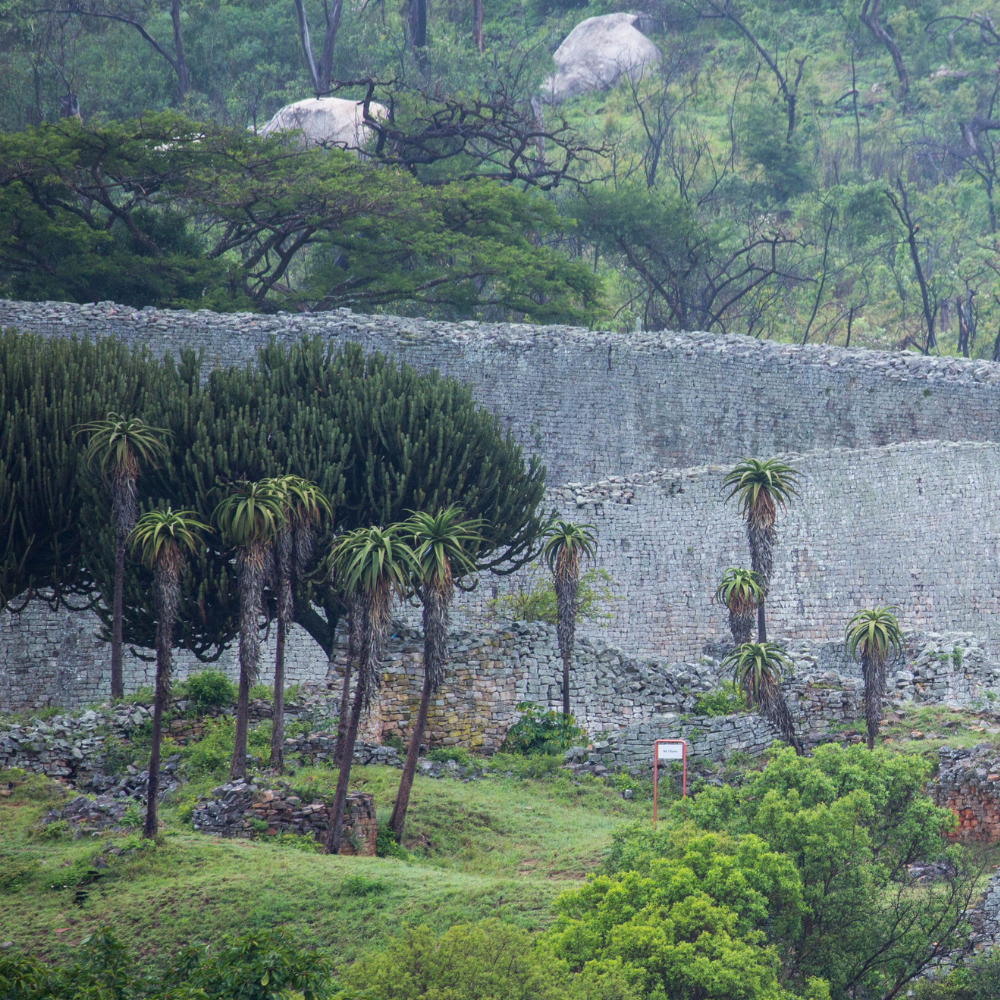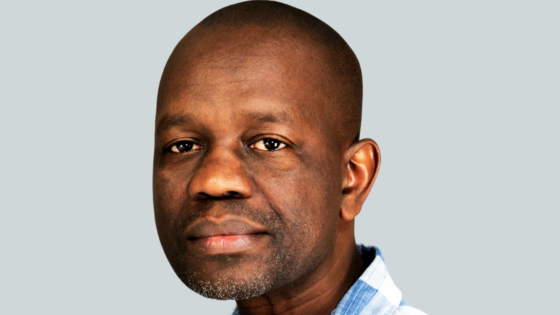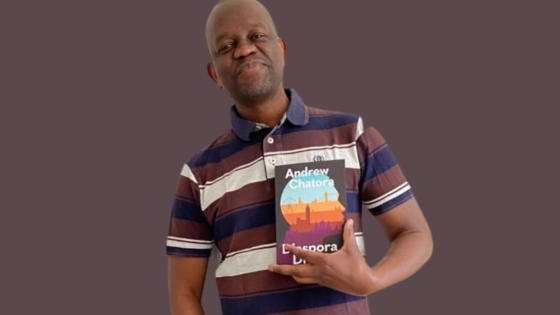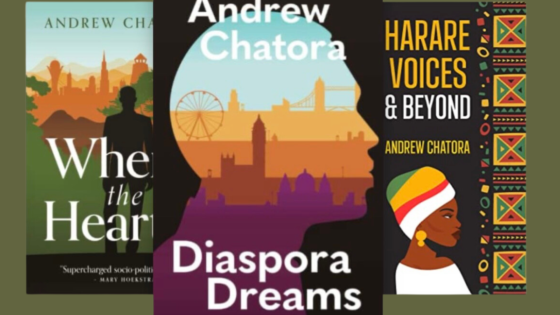You brought pure joy to the lecture rooms and classrooms. Always.
Big up Musimuvi, Shava.
When the history of Zimbabwean literature and arts is written, it would be a travesty and undoubtedly leave an indelible lacuna were Charles Mungoshi’s name to be omitted. Even so, I doubt much justice can be done in eulogising a literary giant whose influence transcend the literary scene in Zimbabwe, both in the pre and post-independence era. Sadly, today (17th of February 2019), I join my fellow citizens in mourning and celebrating the doyen that Mungoshi was to Zimbabwean literature, who sadly passed on in the early hours of Saturday morning, 16 February after bravely squaring up to a neurological illness for over a decade. My sincere condolences to his family, particularly his children and dearest wife, the iconic, affable, accomplished actress Jesesi Mungoshi.
This piece is about acknowledging and celebrating Mungoshi’s life, but in equal measure, – Jesesi’s role in standing by and supporting her husband also deserve plaudits. There is little doubt, the last few years were dark for our hero and scroll maestro, yet Jesesi kept the proverbial flame alive, – ensuring fellow Zimbabweans were kept abreast of Mungoshi’s fluctuating progress and in the end his fledgling literary career which still managed to leave us with another gem; Branching Streams Flow in the Dark (2013). Ironically, the night before his demise, the 15th of February, I had retweeted Jesesi’s promotional message in which she sought to raise finances for Mungoshi’s aforementioned latest offering.
But who was this man, Mungoshi, who educated Zimbabweans from diverse quarters of life, black or white through his books? I cannot even begin to quantify the immeasurable role he played to Zimbabwe’s high literacy rate and the literary field within and beyond ours borders. Born in December 1947 in the then Manyene Tribal Trust Lands in Chivhu, Charles, Lovemore, Muzuva, Mungoshi was a prolific, multi-award-winning novelist, poet, short-story writer, play wright, film scriptor, editor, translator and actor who was globally recognised and celebrated. Being contemporaries with other icons, i.e. Stanley Nyamufukudza, the late Chenjerai Hove and Dambudzo Marechera among others only testifies to how lofty the bar was for these luminaries as amply reflected within the depth and wide repertoire of their output. A grand storyteller, Mungoshi was a master of languages who wrote proficiently in both English and Shona, quite a feat yet to be replicated by contemporary Zimbabwean writers.
I first encountered Charles Mungoshi’s works in my formative years at primary school when I took part in a whole school drama production based on one of his earliest plays; Inongova Njake-Njake, loosely translated, Each Person Does His Own Thing (1980), itself an apt microcosmic wider metaphor on present day Zimbabwe’s woes. Inongova Njake-Njake was profound, poignant and a melancholic gritty drama, which in a dejavu way reverberated in some intimate personal experiences of my later life. Such was Mungoshi’s depth and genius, akin to yet another maestro, the late Samanyanga, Oliver Tuku Mtukudzi, – the sheer brilliance of the duo’s work was such that one always ended up locating their personal story within these sublime heroes’ cultural productions.
Jesesi Mungoshi (middle), a popular Zimbabwean actress who starred as Neria in the 1993 hit film Neria, at Oliver Mtukudzi’s funeral in Madziwa. Neria was written by award winning Zimbabwean writer Tsitsi Dangarembga. Photo: This is Africa/ A Chatora
Many a-times Mungoshi’s timeless classics would live to save the day for me as a befitting parting present for my English colleagues in many of the schools I taught in England, particularly Walking Still (1997), the collection of short stories. For me giving this Mungoshi text to colleagues was something special in a way, I always felt it was the chance to showcase and eulogise the rich Zimbabwean Literary talent and also an opportune moment to constantly remind colleagues of my Zimbabwean identity, jingoism and national pride especially for one working far away from home.
Growing up in the dusty streets of Dangamvura township, in Mutare, Mungoshi’s books were a recurrent hallmark on Zimbabwe’s school curriculum. Among other greats from the scroll maestro, I studied, Ndiko Kupindana Kwamazuwa (That’s How Time Passes) (1975) and Waiting for the Rain (1975) in my undergraduate degree at the University of Zimbabwe (UZ). I owe my English degree and vocation to this literary giant I seek to memorialize today. In subsequent years, in my life teaching A Level English to my prodigies’ in Mutasa district and Mutare in Manicaland province, the generality of my students could attest to my unbridled zeal for Mungoshi’s literature. Such were the depths of my admiration and adulation for the grandmaster of story, that the very first people to inform me of the legend’s passing on were among some of my erstwhile students, “sir, is it true, have you heard the news about Mungoshi.” Some emailed, some DMd via Twitter. Amidst our tears and emotional outpour of grief, one former student reminded me of a recurrent exam question, I used to assign them in relation to Mungoshi: ‘Nihilistic and pessimistic in outlook,’ How apt is this a description of Mungoshi’s works? Thus today, as I mourn the passing on of this herculean icon, I can’t help but chuckle at such reminisces I share with my erstwhile students.
I first met Mungoshi in 1993 my freshman year at UZ, it was a chance street encounter at Inez Terrace in Harare. As an old time, admirer reading English, the meeting couldn’t have been more opportune, a fact I made a point of bragging about to my fellow BA English classmates particularly Girly Masuku, who also happened to be Mungoshi’s neighbour in Chitungwiza and can attest to my endemic Mungoshi euphoria. I was pleasantly taken aback by your warmth in generating an off the cuff tittle-tattle with an absolute stranger as I. My only regret then is, there were no selfies at the time, as now I could be relishing my fifteen minutes of fame with Zimbabwe’s very own Charles Dickens or Wilkie Collins as posterity will live to remember you. We were later to meet at Harare International Book Fair in Harare Gardens, which was always a pivotal moment in celebrating literary talent similar to the way HIFA celebrates music talent.
Thank you, Mungoshi, for a life well lived in endowing and nurturing Zimbabwe’s creative world and for flying our flag high on the global stage. You were certainly one of the greats for publishing a whopping 18 books and bagging an array of the following accolades inter-alia; twice winning the Commonwealth Writers’ prize of Best book in Africa, having one of your poems curated by The Bill and Melinda Gates Foundation as a permanent display of public art at their new headquarters in Seattle, Washington, US, IN 2011. Other awards include: The International PEN Award for publishing in 1981, NOMA Honourable Award for publishing in Africa, in the years, 1984, 1990 and 1992. The Setting Sun and The Rolling World was a New York Times notable book of the year in 1981. The University of Zimbabwe acknowledged Mungoshi’s immense input with an honorary doctorate degree in 2003, following his success in winning multiple awards which include Zimbabwe’s 75 best books where he appeared in the top five lists in both Shona and English categories. Apart from the University of Zimbabwe where he contributed immensely as Writer in Residence in the Department of English in 1985, Iowa University also awarded him a Fellowship in Writing for their International writing programme.
For a country with one of the highest literacy rates in Africa, Mungoshi deserve special recognition. To Mungoshi, famba zvakanaka mwana wevhu – go well son of the soil as we say in our tongue. We owe you a large debt of gratitude. Zimbabwe is poorer today, without you. Nonetheless we celebrate and take solace in your enduring voice. Your legacy will live on in our class rooms, lecture rooms, academic fora and beyond, inspiring posterity. As one user summed it in a tweet;
A reading nation would make Mungoshi a national hero…
But tiri vemagitare
RIP Great author.
A bit of context is essential here to enable a fuller deconstruction of the tweet above, the tweet is exposing the Tweep’s frustration with the State’s failure to accord national hero status to such a sublime luminary as Mungoshi, a similar accolade recently bestowed on the late Oliver Mtukudzi, another great as highlighted earlier.
As a befitting valediction, I have decided to laud Mungoshi’s indissoluble legacy by revisiting some of his larger than life characters, interacting and conversing with them in my inward psyche trajectory. Allusion has earlier been made to the vivacious Rindai. Mungoshi is a grand master at his unique insight into human nature and this skill is perfected with great finesse and astuteness throughout most of his works. Perhaps, none is this so evident as from an array of myriad conspicuously memorable characters from both Waiting for the Rain (1975) and Some Kinds of Wounds and Other Short Stories (1980). In Waiting for the Rain, there was a nomadic character, the enigmatic Garabha, who could come and go like the wind. He was exceptionally gifted when it came to playing the drum, thus he moved from village to village, plying his trade playing the drum, in exchange for alcohol. Garabha’s bohemianism meant he would never settle down. Alienated from his father Tongoona, Garabha was The Old Man’s favourite. Years later, teaching in English schools I immensely enjoyed bandying around the, play your own drum-not other people’s drum metaphor to my bemused students, to which if the metaphor was lost on them, I would hastily add with a chuckle, ‘don’t get involved, mind your own business.’ And who could ever forget, Waiting for the Rain’s protagonist, Lucifer of the infamous quote, ‘being born here was a biological and geographical error, I wish I was born elsewhere of other parents.’ Such was Mungoshi’s sublime craft, the alienation and identity crisis suffered by the then Africans in pre-independence Zimbabwe. Mungoshi’s nomenclature was also equally top notch as amply reflected in Uncle Kuruku, the ‘dodgy’ uncle in Waiting for the Rain. Interestingly, the name Kuruku, rhymes and is derived from the English word, ‘crook’, a liar and manipulator of note, which is very much in keeping with Uncle Kuruku’s traits in the text.
And then there was Betty, who was Garabha’s sister and could never seem to get married even though Matandangoma the medicine man or diviner was at hand to administer his potions. The beauty of Mungoshi’s craft is we all can identify with the wide repertoire of these infectious characters. One such character Big Blaz Sando from Some Kinds of Wounds and other Short Stories became a ubiquitous source of inside jokes between myself and my younger sibling, Arthur who over the years has consistently and valiantly reminded me, that my own personal foibles and eccentricities bore an uncanny resemblance to Mungoshi’s very own creation, Big Blaz Sando. In a nutshell, we have all seen, witnessed and interacted with, Garabha, Betty, Uncle Kuruku and Matandagoma the seer or medicine man in our mundane lives. These are not mere characters within books, but they are beings who have always been right there amongst us. This was the talent of Charles Mungoshi, – to produce, living breathing characters.
What better way to end than to quote the erudite Rino Zhuwarara my former UZ English don who characterises Mungoshi’s contribution well:
Mungoshi is a versatile and prolific Zimbabwean writer who has not only pioneered in the writing techniques of the Shona novel but has also made a lasting impact on the writing of short stories and novels in English. His overall contribution is bound to influence generations to come and as such his works deserve to be examined in detail.











